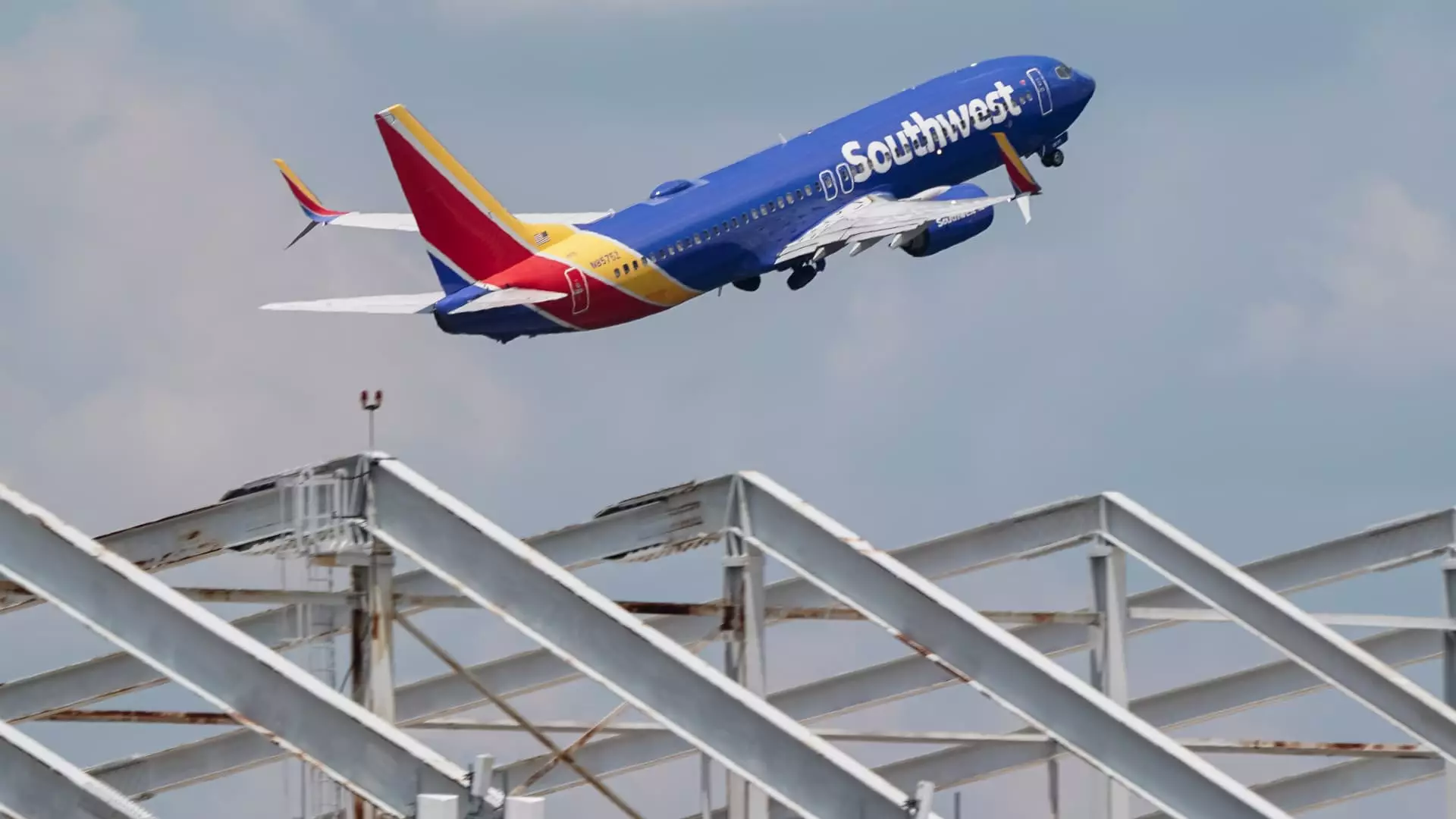In a significant strategic pivot, Southwest Airlines has unveiled plans to curtail its operations in Atlanta, signaling a shift in its business model as it grapples with intensified financial pressures. According to internal communications reviewed by CNBC, the airline is set to slash its workforce in Atlanta by over 300 positions, predominantly affecting pilots and flight attendants, by April 2025. This move is strategically timed just ahead of an investor day, during which executives aim to outline new initiatives aimed at cost reduction and revenue growth.
Southwest’s approach exhibits an acute response to rising scrutiny from activist investors, particularly Elliott Investment Management, pressing the airline to boost profitability in an increasingly competitive landscape. Rather than shuttering its Atlanta crew base entirely, Southwest’s restructuring plan entails a workforce reduction of approximately 200 flight attendants and around 140 pilots, prompting staff to seek reassignment from other cities instead of facing immediate layoffs.
The airline’s operational footprint in Atlanta will also undergo significant scaling, decreasing its gate presence from 18 to 11 while trimming flight routes from an expansive 37 cities down to a more focused 21. These adjustments highlight the company’s need to streamline its services to curb losses and realign with market demands. In a communication to employees, Southwest emphasized that such drastic measures, although challenging, were essential for restoring profitability; they stressed that the decision was not a reflection of employee performance, which they commend.
This retreat from Atlanta, known as the world’s busiest airport and the primary hub for Delta Air Lines, underlines the competitive pressures Southwest faces in a saturated market. Nevertheless, the airline remains committed to adjusting its network to align with customer demand, optimize fleet utilization, and capitalize on revenue opportunities.
Interestingly, while Southwest is downsizing its Atlanta operations, it simultaneously plans to expand its presence in Nashville, Tennessee, indicating a shift in focus that could reflect changing patterns in travel demand. The airline plans to enhance service in Nashville, illustrating its strategy to invest in routes and markets that present stronger revenue prospects.
Furthermore, Southwest is preparing to launch new overnight flights from Hawaii, commencing on April 8. This includes a range of services from Honolulu to Las Vegas and Phoenix, highlighting the airline’s eagerness to revive its operational tempo as it seeks fresh revenue streams. This dual strategy of downsizing in one area while investing in another suggests a calculated response aimed at bolstering financial stability amidst adversity.
Southwest, like many airlines, faces broader challenges attributed to evolving booking trends and fluctuations in a market that has become increasingly oversaturated. Additionally, operational challenges such as aircraft delays — notably those related to Boeing’s delayed 737 Max 7 aircraft — complicate the landscape further. In response, Southwest’s Chief Operating Officer, Andrew Watterson, has indicated that the company must confront the necessity of making “difficult decisions” to uplift its profitability.
These alterations signal more than just operational adjustments; they reflect the airline’s proactive approach to curtail losses in a rapidly changing aviation market. The introduction of new seating policies, including plans to implement extra legroom, constitutes a significant departure from the traditional open seating arrangement Southwest has maintained for over fifty years.
The forthcoming changes in Southwest Airlines’ operational strategy highlight the organization’s adaptability amidst mounting pressures to enhance financial performance. As the airline pivots away from Atlanta, it chooses to refocus on markets where profitability is more attainable. By strategically assessing its workforce and modifying service routes, Southwest is navigating the complexities of the current aviation landscape, setting the stage for a renewed commitment to profitability while remaining attentive to customer needs. The evolution of Southwest Airlines underlines the necessity of rethinking approaches in a competitive industry, ensuring that it remains relevant and resilient in the face of adversity.


Leave a Reply